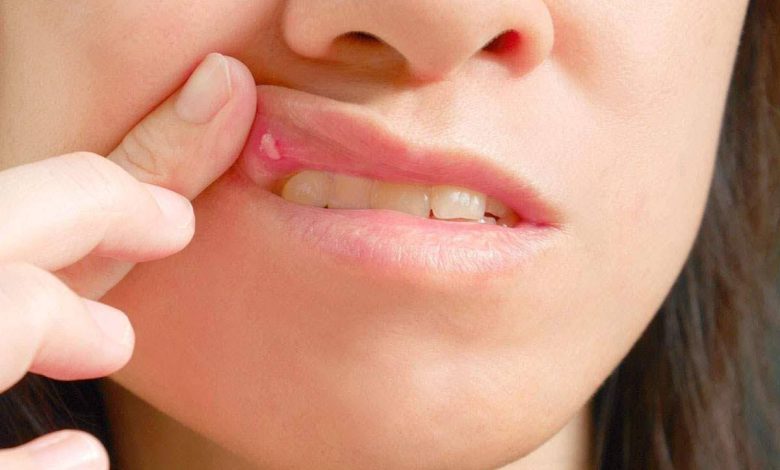Mouth ulcers, sores in the mouth: what is this, causes, symptoms, diagnostics, treatment, prevention

Mouth sores; Aphthous stomatitis; Aphthous ulcers; Herpes simplex; Cold sores; Canker sores
Mouth ulcers are unusual defects, made up of various materials, that exist at the bottom of the mouth, language, lips, the inside of the cheeks or even the throat.
They may be uniform or heterogeneous and may vary in size., color and shape.
Mouth ulcers can be associated with various factors., including injuries, infection, allergies, some diseases, some medicines, some foods and some habits, such as smoking and constant itching in the mouth.
They can be painful and can cause discomfort and difficulty eating.. Treatment for mouth ulcers depends on their cause and may include the use of medications., changing diet and changing habits.
Causes of mouth ulcers
Mouth ulcers can be caused by the following factors:
- A sharp or broken tooth or ill-fitting dentures
- Cheek biting, tongue or lips
- Burning sensation in the mouth from hot food or drinks
- Braces
- chewing tobacco consumption
Herpes caused by the herpes simplex virus . He is very contagious.. Often you will be sore, tingling or burning before, How does a real ulcer appear?. Herpes most often starts with blisters, and then covered with a crust. The herpes virus can live in the body for years.. It manifests itself as a mouth ulcer only when, when something calls it, eg:
- Another disease, especially if you have a fever
- Hormonal changes (eg, menstruation)
- Stress
- sun exposure
Stomatitis not infected. These ulcers may appear as pale or yellow lesions with a red outer ring.. They are more common in women. than men. The cause of stomatitis is not exactly clear.. It is believed, that its appearance can cause:
- Weak immune system (eg, due to a cold or flu)
- Hormonal changes
- Stress
- Lack of certain vitamins and minerals in the diet, including vitamin B12 or folic acid.
Less commonly, mouth ulcers can be a sign of illness., tumors or drug reactions. Reasons may include:
- Autoimmune diseases (including systemic lupus erythematosus )
- Blood clotting
- mouth cancer
- Infection, such as palmar nail disease
- Weakened immune system - for example, if you have AIDS or are taking medication after a transplant
Medicines, which can cause mouth ulcers, include aspirin, beta-blockers, chemotherapy drugs, penicillamine, sulfa drugs and phenytoin.
home treatment for mouth ulcers
Mouth ulcers often resolve in 10 to 14 days, even if you don't do anything. Sometimes they last up to 6 weeks. The following steps will help you feel better:
- Avoid hot drinks and foods, spicy and salty foods, as well as citrus.
- Gargle with salt or cool water.
- Eat popsicles. This is useful, if you have a mouth burn.
- Take painkillers, such as acetaminophen.
From stomatitis:
- Apply a thin layer of baking soda to the inflamed area.
- mix 1 part of the hydrogen peroxide 1 part of water and apply this mixture on the sores with a cotton swab.
- In more severe cases, treatment includes fluocinonide gel (Lidex), amlexanox anti-inflammatory paste (Aphthasol) or mouthwash containing chlorhexidine gluconate (Peridex).
Medicines, otpuskaemыe without prescription, such as Oracle, can protect the wound inside the lip and on the gums. Blistex or Campho-Phenique may provide some relief from stomatitis and herpes blisters, especially if they are used at the first appearance of an ulcer.
Cream with acyclovir 5% can also be used to reduce the duration of herpes.
To get rid of herpes or fever, you can also put ice on the ulcer.
You can reduce the chance of common mouth ulcers, following simple instructions:
- Avoid very hot food or drinks
- Try to reduce your stress levels and practice relaxation techniques, such as yoga or meditation.
- Chew food slowly
- Use a toothbrush with soft bristles
- Contact your dentist immediately, if you have a sharp or broken tooth or ill-fitting dentures.
If you often get ulcers, talk to your doctor about taking folic acid and vitamin B12 to prevent flare-ups.
To prevent oral cancer:
- DO NOT smoke or use tobacco.
- Limit hard alcohol consumption to the maximum 70 grams per day.
Wear a wide-brimmed hat, to shade lips. Always use a lip balm with SPF 15.
When to See a Doctor for Mouth Ulcers
Contact your doctor, if:
- Pain begins shortly after, how do you start taking a new medicine.
- You have large white spots on your palate or tongue (it could be thrush or another type of infection).
- Sore mouth lasts longer 2 weeks.
- You have a weakened immune system (eg, due to HIV or cancer).
- Do you have other symptoms, such as fever, skin rash, drooling or difficulty swallowing.
What to Expect When Visiting a Doctor
A health worker will examine you and take a close look at your mouth and tongue. You will be asked questions about your medical history and symptoms.
Treatment may include:
- Medicine, which anesthetizes the area of ulcers, such as lidocaine, to ease the pain. (DO NOT use on children.)
- Antiviral medicine to treat herpes sores. (However, some experts believe, that drugs won't make ulcers go away sooner.)
- Steroid gel, which you should apply to the sore spot.
- Pasta, reducing swelling or inflammation (eg, Aphthasol).
- Special type of mouthwash, such as chlorhexidine gluconate (eg, Peridex).
Used literature and sources
Daniels Te, Jordan RC. Diseases of the mouth and salivary glands. In: Goldman L, Schafer AI, eds. Goldman-Cecil Medicine. 26th ed. Philadelphia, PA: Elsevier; 2020:chap 397.
Simon L., Silk H. Diseases of the mouth. In: Kellerman RD, Rakel DP, eds. Conn’s Current Therapy 2022. Philadelphia, PA: Elsevier 2022:1048-1053.
Sciubba JJ. Oral mucosal lesions. In: Flint PW, Francis HW, Haughey BH, et al, eds. Cummings Otolaryngology: Head and Neck Surgery. 7th ed. Philadelphia, PA: Elsevier; 2021:chap 87.
